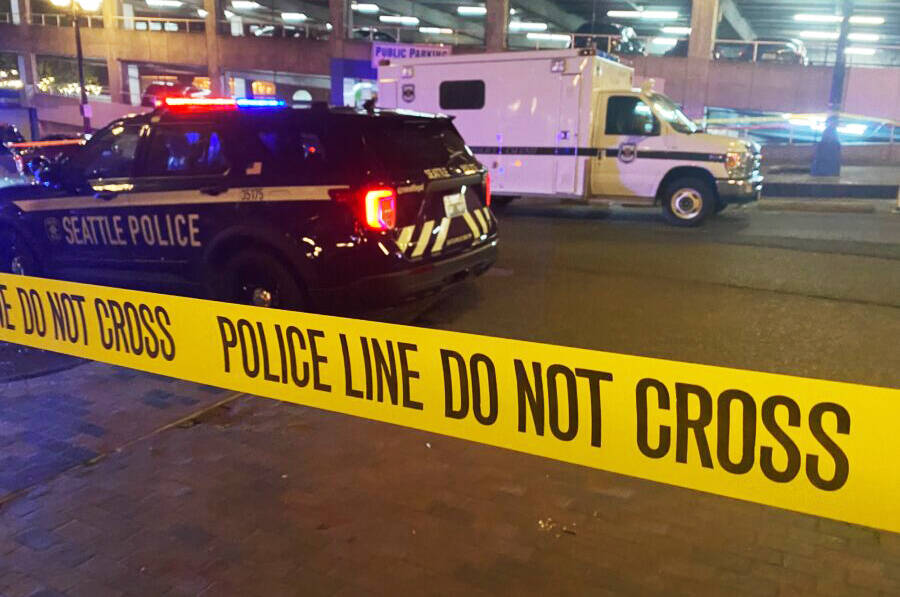California store delivers LGBTQ2S+ books to states where it is banned

San Francisco, California –
In an increasingly divided political sphere, Becka Robbins focuses on what she does best – books.
Working out of a tiny space at Fabulosa Books in San Francisco’s Castro District, one of the oldest gay neighborhoods in the U.S., Robbins uses customer donations to ship boxes of books nationwide to groups that want them.
Through her Books Not Bans initiative, she sends out books on queer history, sexuality, romance and more—many of these books are becoming increasingly hard to come by amid a rapidly growing movement of conservative advocacy groups and lawmakers seeking to ban them from public schools and libraries.
“The book bans are terrible, the attempt at erasure,” Robbins said. She wondered how she could get these books into the hands of the people who need them most.
She’s been raising money and looking for recipients since last May. Her books have gone to places like a Pride Center in West Texas and an LGBTQ2S+-friendly high school in Alabama.
Customers are especially keen to help Robbins ship books to states like Florida, Texas and Oklahoma, often writing supportive letters to include in the packages. Over 40 percent of all book bans from July 2022 to June 2023 occurred in Florida, more than any other state. Behind Florida are Texas and Missouri, according to a report by PEN America, a nonprofit literary advocacy group.
According to the American Library Association, book bans and attempted bans have reached record levels. And the efforts now extend to both public and school libraries. Because the totals are based on media reports and reports submitted by librarians, the association considers its numbers to be snapshots, with many bans not captured.
According to PEN America’s report, 30 percent of bans involve characters of color or discuss race and racism, and 30 percent involve LGBTQ2S+ characters or issues.
The most comprehensive objections often come from conservative organizations, such as Moms for Liberty, which has campaigned for a ban nationwide and called for greater parental control over the books available to children.
Moms for Liberty is not anti-LGBTQ2S+, co-founder Tiffany Justice told the Associated Press. But according to the library association’s Office for Intellectual Freedom, about 38 percent of book challenges that “emanate directly from the group” have LGBTQ2S+ themes. Justice said Moms for Liberty challenges sexually explicit books, not because they address LGBTQ2S+ issues.
Films that topped the ban list include Maia Kobabe’s “Gender Queer,” George Johnson’s “All Boys Aren’t Blue,” and Nobel Prize winner Toni Morrison’s “Very Blue Eyes.”
Robbins said it is more important than ever to make these types of books available to everyone.
“Literature teaches us how to dream,” Robbins said. “It teaches us how to connect with people who are not like us, it teaches us how to listen and how to evoke empathy.”
She has shipped 740 books so far, with each box worth $300 to $400, depending on the title.
At the new Rose Dynasty Center in Lakeland, Florida, books donated by Fabulosa are already on the shelves, said Jason DeShazo, a drag queen known as Momma Ashley Rose who runs the LGBTQ2S+ community center.
A family-friendly drag performer, DeShazo has long hosted drag story hours to promote literacy, using puppets to address themes such as kindness, dealing with bullies, and giving back to the community.
DeShazo wants to create a safe space for events, support groups and health centers and build a library of banned books.
“I don’t think a person of color has to search that long to find a great book about the history that our black community has gone through,” DeShazo said. “Or that someone who is queer has to find a book that represents them.”
Robbins’ favorite books to send out are young adult queer romance novels, a fast-growing genre as conversations about LGBTQ2S+ issues are much more mainstream today than they were a decade ago.
“The characters are like normal kids – normal people who are also queer, but who also fall in love and are happy,” Robbins said.
Ding reported from Los Angeles.

